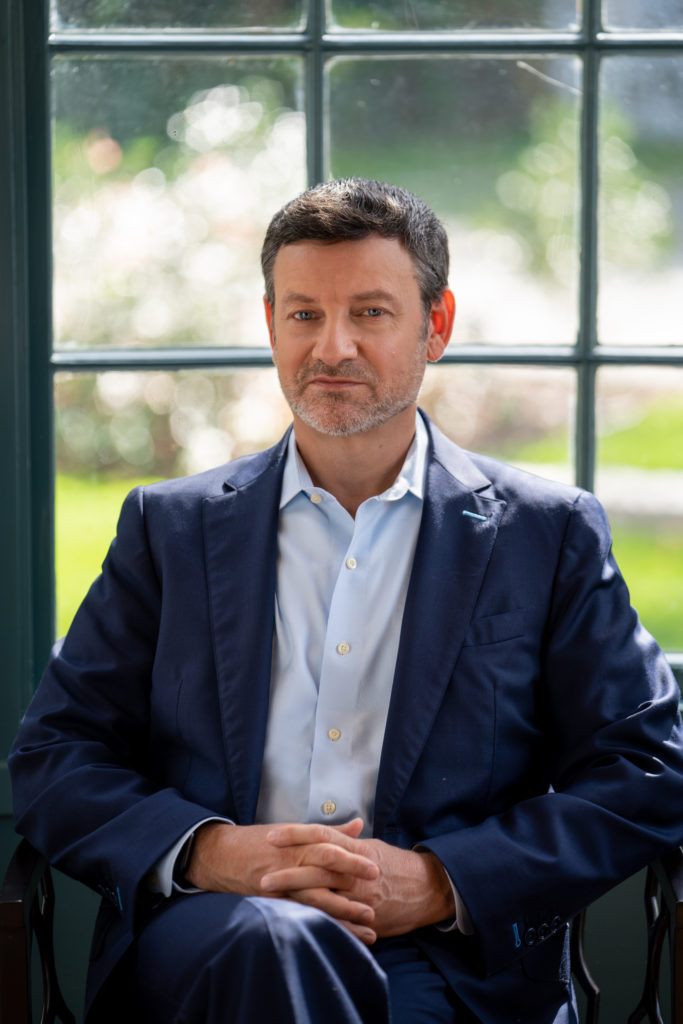Speaking on the All Inclusive podcast with Jay Ruderman, the actor Geena Davis discusses on-screen gender representations in the industry, and how her organization is driving change.
Los Angeles, CA, February 2, 2022— Academy Award winner Geena Davis said she was surprised and disappointed when research showed roles for female actors over fifty were few and far between while speaking as a guest on the All Inclusive Podcast with Jay Ruderman.
Davis, now 66, is best known for her groundbreaking roles in 1990s films such as Thelma and Louise, A League of Their Own, and her Oscar Award-winning performance in The Accidental Tourist.
“Before I was even in the business, I had heard that women after 40 in Hollywood have real trouble getting jobs,” Davis told podcast host Jay Ruderman. “And when I was starting out I thought, ‘Well, it’s not going to happen to me — I’m getting all these incredible roles, so I’ll be an exception if it’s still the rule.’ And then I profoundly was not the exception. It’s still a huge problem…The chances of a really great part like I’ve played in the past coming along is slim.”
“As data has always been key to actually measure the gender, equity and inclusion disparities, my Institute’s recent study revealed that the population of characters that are over 50 in films is only 20%,” she continued. “Only a quarter of that is women over 50. Now, you’re not even talking about 70- and 80-year-olds. We’re just talking about over 50.”
Davis said the industry’s tendency to cater to male audiences heightened back when the era of the blockbusters first came around, and Hollywood decided they should aim those movies at the teenage boy segment of the public. “It became very focused on younger males as the audience,” she said. “And there was also this belief — which is actually a myth, but still held by many people in the industry — that women will watch anything, but men [don’t want to] watch women.”
The lack of equality in Film and TV prompted Davis to take on a different type of role, fighting for gender equality and representation onscreen in the industry. In 2004, she founded the Geena Davis Institute on Gender in Media. For the past 18 years, the Institute has worked collaboratively with the entertainment and media industries to dramatically increase the presence of female characters and other underrepresented groups in entertainment and media.
Davis was struck by the disparity when she was watching content with her toddler daughter, she said. “I noticed immediately that there were far more male characters than female characters [in kids’ media], and I couldn’t believe it. And then I started noticing it everywhere, in the movies that we were watching. I didn’t intend to start an institute right then — the immediate thing I thought was, ‘We’re training kids from minute one to have a gender bias by showing these wildly unbalanced worlds to them.’”
The institute began influencing the industry with their first study, indicating that only 11% of lead characters in movies for kids were female; today, female and male leads have reached parity in film, as well as in TV shows made for kids. Speaking of the importance of advocating for authentic representation, Davis discussed the power media companies have to change attitudes around the world in how underserved demographics are represented. “There’s one area of inequality in our society that can be changed absolutely overnight and it’s the media.”
The actor also stated that despite her two biggest movies hitting their 30-year anniversaries — 2021 for Thelma & Louise, 2022 for A League of Their Own, women’s sports and buddy movies are still few and far between.
“[The press] predicted that Thelma & Louise would change everything. And then when A League of Their Own came out, all the press claimed that now we’re going to see so many more female-centric sports movies. I think the next female sports movie to come out was Bend It Like Beckham ten years later, which wasn’t even an American production. It didn’t happen.”
Even with the success of A League of Their Own, Davis recalled some sexist media coverage she encountered at the time. “When reporters would come to the set to interview me, every single one asked, ‘So, is there a lot of cat-fighting with all you women?’ It was just interesting that all they could think of to ask about a female cast was do we cat-fight with each other!”
Davis was also keen to point out the impact the movie had beyond Hollywood, inspiring young girls, and changing the stigma around women in sports. “It’s virtually the same now as when the movie came out, the number of people who recognize me from that movie — and the vast majority of people who stop me want to say, ‘I play sports because of that movie,’” she said. “So I think it had an incredible impact, and not just for baseball, I mean any sport, soccer, whatever, they took it up because they saw a movie about women playing sports. So it’s been profound in my life; I love having teenage girls recognize me and say, ‘Dottie!’”
In the All Inclusive podcast, Ruderman Family Foundation President Jay Ruderman interviews leaders and experts across a wide array of industries on the latest news, technology, and advocacy pertaining to social justice. Ruderman and the program’s guests share the mindset that in order to make progress that will lead to an innovative future, honest discussions must be held.
The podcast’s high-profile guests have included actors Fran Drescher and Tony Goldwyn; Chief Operating Officer of the Academy of Motion Picture Arts and Sciences Christine Simmons; renowned Holocaust historian Dr. Deborah Lipstadt; Harvard University President Lawrence Bacow; Anchor and Managing Editor of PBS NewsHour Judy Woodruff; and Host Hotels Chairman Richard Marriott.
For more information on the podcast, visit: https://allinclusivepodcast.com/
For the full episode with Geena Davis, visit: https://allinclusivepodcast.com/podcasts/hollywood-isnt-just-for-the-boys/
